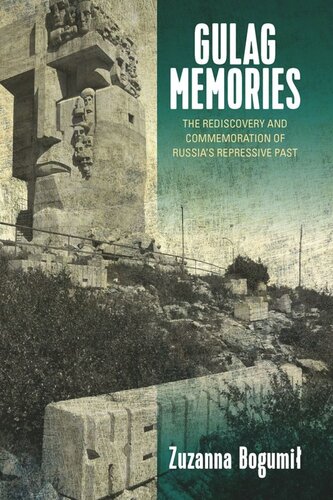

Most ebook files are in PDF format, so you can easily read them using various software such as Foxit Reader or directly on the Google Chrome browser.
Some ebook files are released by publishers in other formats such as .awz, .mobi, .epub, .fb2, etc. You may need to install specific software to read these formats on mobile/PC, such as Calibre.
Please read the tutorial at this link: https://ebookbell.com/faq
We offer FREE conversion to the popular formats you request; however, this may take some time. Therefore, right after payment, please email us, and we will try to provide the service as quickly as possible.
For some exceptional file formats or broken links (if any), please refrain from opening any disputes. Instead, email us first, and we will try to assist within a maximum of 6 hours.
EbookBell Team

4.4
52 reviewsThough the institution of the Gulag was nominally closed over half a decade ago, it lives on as an often hotly contested site of memory in the post-socialist era. This ethnographic study takes a holistic, comprehensive approach to understanding memories of the Gulag, and particularly the language of commemoration that surrounds it in present-day Russian society. It focuses on four regions of particular historical significance—the Solovetsky Islands, the Komi Republic, the Perm region, and Kolyma—to carefully explore how memories become a social phenomenon, how objects become heritage, and how the human need to create sites of memory has preserved the Gulag in specific ways today.